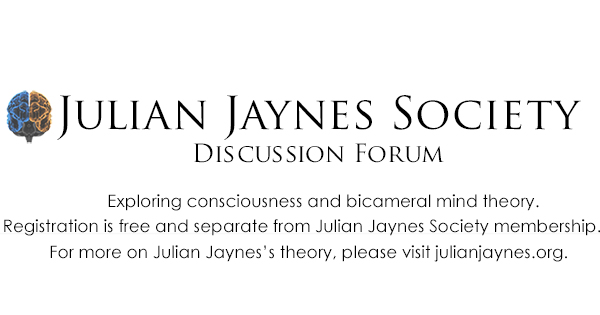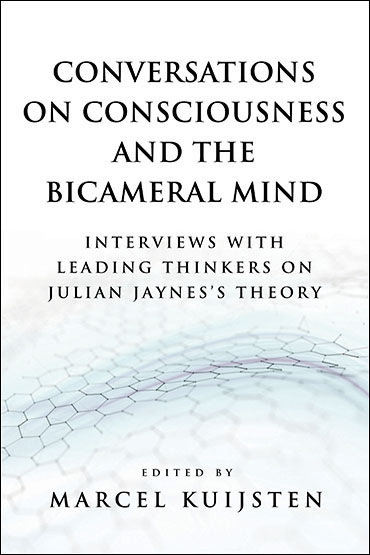Let us start with a simple and straightforward claim: All human societies exhibit or have exhibited religiosity. This is a fact so solid, so obvious, that it usually remains unchallenged. We are so familiar with the historical landscape of religion that we do not question the utter strangeness of the enduring and timeless presence of gods, spirits, and other assorted numina. We are too close to the subject to see something that is blindingly apparent and are unabashedly complacent about the widespread and omnipresence of religious beliefs across cultures. Those who have attempted to address this mystery usually try to explain religion away rather than confronting and actually explaining it. This datum about the universality of spirituality reveals some crucial and significant things about human psychology. I argue that a compelling need exists to investigate why the religious impulse is elemental, everywhere, and ever-present historically. Investigating the very early origins of spirituality teaches us much about the psyche. All people are “religious” if broadly understood, i.e., the ingredients of the spiritual impulse drive the manifold articulations of human behavior: (1) socioaffiliation (the desire for belongingness); (2) a framework of lived significance (a purposeful, meaningful live); (3) authorization (the need for guidance from a trusted other); and (4) being cognizant of our own mortality, i.e., our built-in expiration date.
I submit that Julian Jaynes’s bicameral mentality is the core factor underlying much of religious behavior. A two-tier neurocultural operating system of divine power and mortal follower is the explanatory common denominator that accounts for a plethora of hitherto unsolved behaviors: Supernatural visitations, spirit possession, prophetic frenzy, divination, glossolalia, and felt presence, as well as other anomalous activities (hallucinations, hypnosis, imaginary playmates, channeling, etc.). If judged by Occam’s Razor, no theory to date has the explicatory sharpness of Jaynes’s set of hypotheses.
If Jaynes’s two-tiered psychology of pilot (divine power) and executor of commands (mortal human) is correct, then we can postulate a primordial drive, something inherent to humanity from its earliest stages that sustains the enduring nature of religious inclination. I coin the term “prototheism” to describe the first form of religion; "proto" indicates something primitive or early in development, while "theism" means spiritual or supernatural. Prototheism underscores the foundational and nascent nature of the initial human expressions of religious beliefs, as well as subsuming theoglobalism (i.e., the pervasive and ubiquitous nature of religion across the world).
To have any scientific validity, prototheism must be shown to actually exist, of course, and elsewhere I have done this by proposing and offering evidence of the Bicameral Civilization Inventory (BCI) Hypothesis. The items on this list are behavioral homologues or underlying psychohistorical commonalties that are found in all civilizations. The prototheism proposition overlaps with the BCI Hypothesis, but another way to look at matters is to claim that prototheism is to the BCI Hypothesis as a primary hypothesis is to a set of auxiliary, supportive subhypotheses.
Researchers can be divided into two categories: (1) Those who seek universalistic principles of human nature versus (2) those who find the particulars of place and period important in their own right. The first group sees reductionism as a methodological convenience; the stripping of nuance from the human condition is the necessary price to be paid for discovering generalizations. For the second group, i.e., those who are attracted to highly localized and historically delineated studies (e.g., cultural anthropologists and some historians), the first group (e.g., psychologists) are at best merely working with grand but empty abstractions, and at worst, dehumanizing their subjects. After all, differences themselves matter and possess inherent value. For the second group, then, adopting a prototheistic perspective informed by a Jaynesian analysis may be too generalizing, as it seems to be making large pronouncements that drown out or overlook what is distinctive, special, and unique about each spiritual tradition. My description of two types of researchers is, of course, a caricature, as the output of most researchers can be characterized as falling in both categories. But I make this point to counter those who feel that a prototheistic perspective is merely a set of sweeping theoretical claims that cannot illuminate the wonderful subtleties and rich colors of a given religious legacy.
The Spiritual Impulse Is Primordial and Historically Omnipresent: The Prototheism Hypothesis
Posts by anthropologist, mental health counselor, and author Brian J. McVeigh on Julian Jaynes's theory and related topics.
Return to “Brian J. McVeigh's Random Thoughts”
Jump to
- JJS Forum
- ↳ General Discussion
- ↳ News Items Related to Jaynes's Theory
- ↳ Book Discussion: The Origin of Consciousness and Julian Jaynes Society Publications
- ↳ Myths, Misconceptions, and Fact Checks About Julian Jaynes's Theory
- ↳ Brian J. McVeigh's Random Thoughts
- ↳ Julian Jaynes
- ↳ Conferences, Events, and Local Discussion Groups
- ↳ Lecture Discussion
- ↳ Interview and Q&A Discussion
- ↳ 1.0. Hypothesis One: Consciousness Based On Language
- ↳ 1.01. Hypothesis One: Consciousness Based On Language | Subtopic: Consciousness & Dreams
- ↳ 1.02. Hypothesis One: Consciousness Based On Language | Subtopic: Consciousness in Children
- ↳ 1.03. Hypothesis One: Consciousness Based On Language | Subtopic: Consciousness and AI
- ↳ 2.0. Hypothesis Two: The Bicameral Mind
- ↳ 2.1. Hypothesis Two: The Bicameral Mind | Subtopic: Auditory Hallucinations in Normal Adults
- ↳ 2.2. Hypothesis Two: The Bicameral Mind | Subtopic: Hallucinations & Imaginary Companions in Children
- ↳ 2.3. Hypothesis Two: The Bicameral Mind | Subtopic: Hypnosis, Possession & Altered States of Consciousness
- ↳ 2.4. Hypothesis Two: The Bicameral Mind | Subtopic: Religion & the Bicameral Mind
- ↳ 2.5. Hypothesis Two: The Bicameral Mind | Subtopic: Schizophrenia
- ↳ 2.6. Hypothesis Two: The Bicameral Mind | Subtopic: The Mentality of Pre-Literate & Pre-Modern Peoples
- ↳ 3.0. Hypothesis Three: Dating the Development of Consciousness
- ↳ 4.0. Hypothesis Four: Jaynes's Neurological Model for the Bicameral Mind
- ↳ The Bicameral Mind in Fiction, Film & Popular Culture
- ↳ Information for Students


